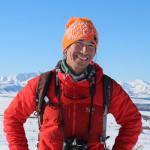Developing Arctic village resilience to changes in the water cycle, river systems, and coasts
Navigating the New Arctic (NNA) is one of NSF's 10 Big Ideas. NNA projects address convergence scientific challenges in the rapidly changing Arctic. The Arctic research is needed to inform the economy, security and resilience of the Nation, the larger region and the globe. NNA empowers new research partnerships from local to international scales, diversifies the next generation of Arctic researchers, and integrates the co-production of knowledge. This award fulfills part of that aim.
The Arctic is responding rapidly to global climate change, which is driving Arctic temperature increases at twice the rate of the rest of the planet. Sea ice is retreating, permafrost is thawing, sea level is rising, and the timing of precipitation cycles in rain and snow are changing. As the Arctic continues to warm, it is essential that scientists and Arctic residents develop plans that holistically consider how communities might adapt to changes in their physical world.This new warmer Arctic presents challenges to Arctic peoples and ecosystems as traditional ways of life are altered. Adaptation requires knowledge of how, and at what rate, the Arctic is changing. To do so, this project will deepen existing partnerships with Arctic people in western coastal Alaska through the Alaska Native Tribal Health Council (ANTHC) and to collaborate with communities at risk. The research will grow a comprehensive view of community needs and prepare community members for responding to three important areas of concern to society: the impact of a changing climate on municipal water use; the impacts of coastal erosion and river derived sediment delivery to harbor facilities, infrastructure, and health; and the future of access to abundant and clean community water resources.
This planning process will set the foundation for a larger project in the future. While the content and intellectual merit of this future science plan is purposefully not set given the need for community planning and dialogue, it is expected that the three focus areas will yield hypotheses and science goals that will answer important open science questions, while at the same time serving local communities and other stakeholders looking to the future. This planning process will identify new and exciting science questions as conceived by Arctic residents based on their own knowledge and observations. The approach is to hold four hub workshops in Alaska (2 in Bethel; 2 in Kotzebue) allowing local residents to express their concerns and desired science goals. The researchers will invite residents and other stakeholders from as many as 30 regional villages and subsistence camps to engage with the researchers to identify key concerns, threats and opportunities for resilience. The researchers will then use the intersection of societal needs and the scientific method to develop an integrated plan that both addresses emerging issues but also serves to build capacity (skills, knowledge, tools, equipment) in the hubs and villages as the Arctic continues to change in the coming decades. This phase one planning period will include direct training and support of multiple community members from each village, especially young people, empowering them to take charge of their own science as they navigate their own New Arctic.
This award reflects NSF's statutory mission and has been deemed worthy of support through evaluation using the Foundation's intellectual merit and broader impacts review criteria.
Beginning in spring of 2020, a field team of 3 in partnership with the Alaska Native Tribal Health Consortium (ANTHC) will conduct two workshops at each of two community hubs in remote Alaska (Bethel and Kotzebue), and then one culmination meeting in Anchorage. The purpose of the Navigating the New Arctic (NNA) meetings are to address issues around potable water, water sanitation, and needed infrastructure as conditions change in the Arctic. In addition to preparing for a much larger study involving the needs and hazards facing communities in western and northwestern Alaska.
Project Outcomes
The Arctic is responding rapidly to global warming in the face of our slow global response to lowering human-made carbon emissions. This "new" or at least, “different” Arctic presents hard challenges to Arctic peoples and ecosystems as traditional rhythms of life are changing as sea ice is retreating, permafrost is thawing lowering the land, sea level is rising, and rainy season cycles are changing in time. These challenges require the sharing and innovative study that includes Indigenous knowledge, residents’ experiences, fieldwork, and satellite observations. Because Arctic people are navigating a rapidly changing “new Arctic”, our planning grant allowed researchers and indigenous people in Mekoryuk and Kongiganak, on the coast of the eastern Bering Sea to chart a course together that holistically considers both the physical world and human dimensions of these new realities. Any study of the new Arctic must include the personal experience of its inhabitants and provide adequate training and opportunity for Indigenous people to plan over their own short- and long-term response to these grand challenges.
This successful planning grant was initially funded to help build connections and ideas for a larger Phase 1 Navigating the New Arctic project to be proposed with partnering communities. Our first proposal submitted Spring 2021 was not funded. However, together we resubmitted in Spring 2022 and were successfully funded with a Phase 1 project that started January 2023. We completely revised the proposal to better combine the science questions and address priorities for village residents . Through these conversations, we found that focusing on the primary issues of coastal erosion, permafrost thaw, sea level rise, flooding, and terrestrial water cycles and its impact on infrastructure- most importantly remote water and sanitation infrastructure – was important. Our plans with the communities will be documented so that the approach can be translated to other villages on the Yukon Kuskokwim (YK) Delta.
We celebrate that community partners determined the title of the funded proposal and were directly involved in coming up with the ideas and writing; two of them are now co-leads on the funding awarded to Alaska Pacific University. This final report summarizes the outcomes of our shared planning that persisted through COVID-driven delays and in the villages in August 2022 and May 2023 to maintain momentum, talk with teachers and students in the schools, and continue the joint effort of building trust and blending together local knowledge and a science agenda for this work.
With planning and conversation, we expanded our focus areas to study goals that will answer important open science questions, while also serving Arctic Indigenous communities as they look 5-7 generations into the future. However, we know that looking even 2 generations (60 years) forward comes with worries because of how the rapid rates of climate change are impacting their way of life.
We developed a research schedule that embraces the Yup’ik and Cup’ig cultural relationship with the changing phases of water (“meq”) in the Arctic environment of the outer Yukon-Kuskokwim Delta region, including three co-designed themes:
1) safe and reliable water and sanitation systems that reflect local preferences and are resilient to rapid environmental change,
2) advancing shared knowledge and workforce development linking natural and human water systems through community-based monitoring and education; that is, safe and sustainable water and sanitation infrastructure, and,
3) merging science and education through art and ways of knowing.
The goal of this proposal was to join together traditional knowledge systems with western science tools to determine the rate of landscape change in a warming Arctic future and evaluate how this change will impact long range planning to meet regional needs for sustainable livelihoods and water infrastructure. That is, to study rates of landscape change and adaptation as conceived by Arctic residents from what they experience. In partnership, we are using the intersection of their knowledge and needs and our expertise to develop an integrated science plan that both addresses emerging issues but also serves to build capacity (education and livelihoods) in the villages as the Arctic continues to change in the coming decades.

